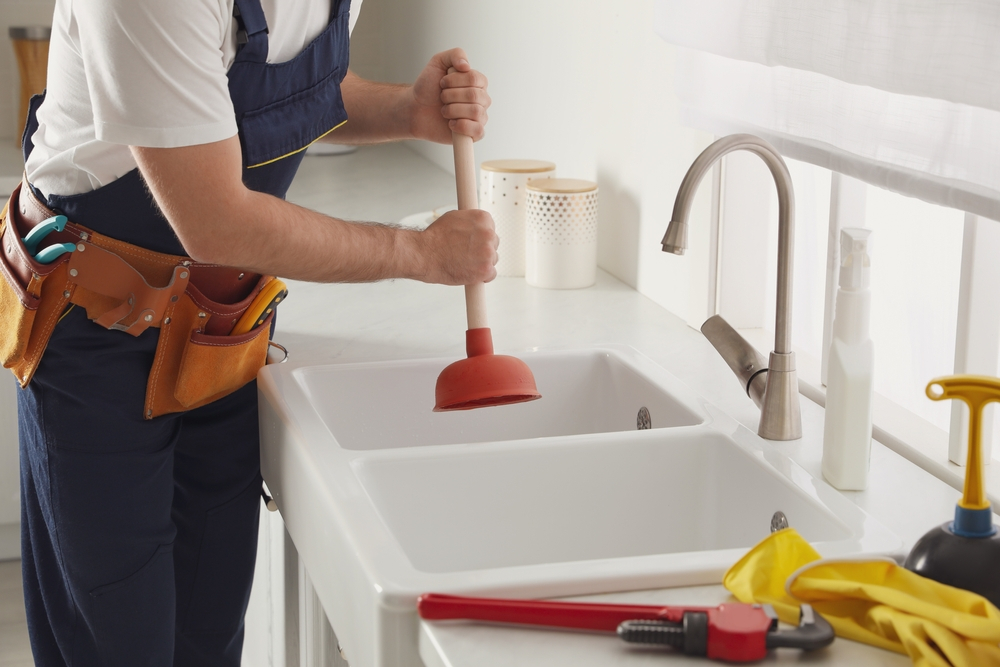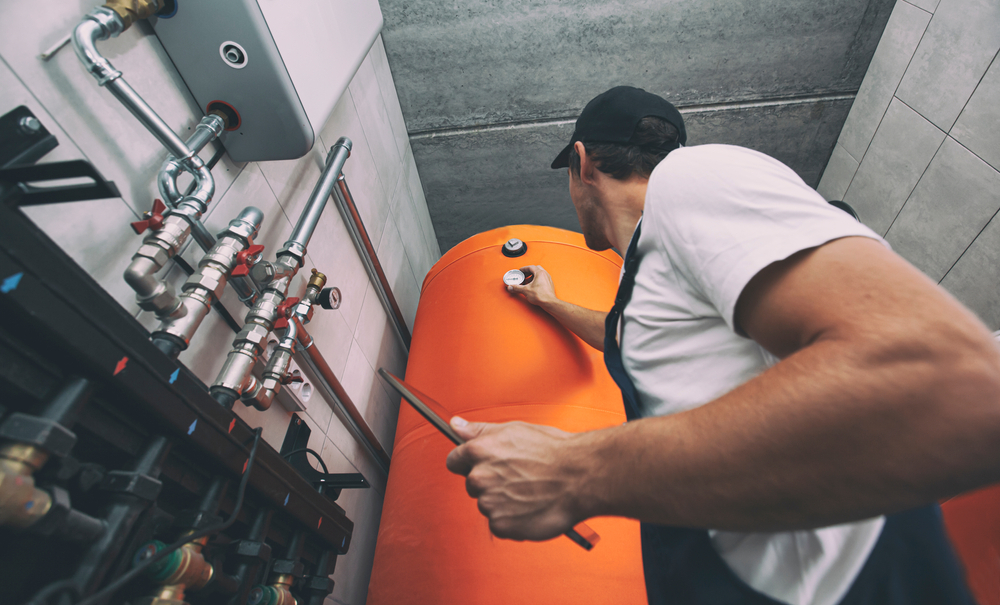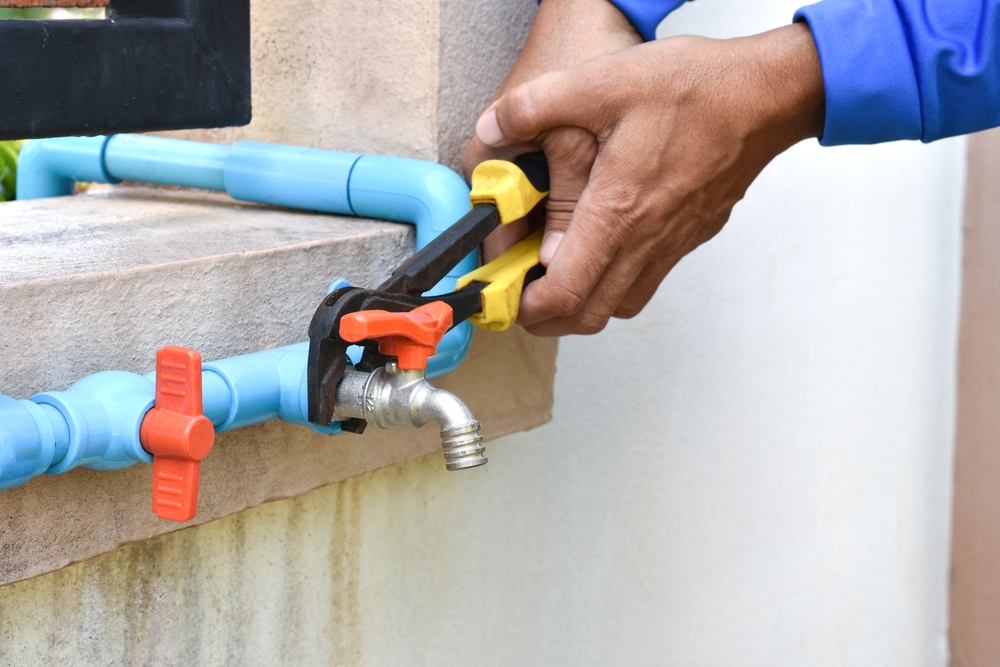Plumbing plays a vital role in every home. It ensures that water flows properly, allowing you to perform daily tasks like cooking, cleaning, and bathing with ease. A well-maintained plumbing system is essential for comfort and convenience. However, homeowners frequently encounter plumbing issues that can disrupt their routines and lead to costly repairs. This article explores common plumbing problems, their causes, solutions, and tips for preventing them, so you can keep your home’s plumbing in excellent condition.
Causes of Common Plumbing Problems
Clogged Drains
Causes of Clogged Drains:
- Hair and Soap Scum: In bathrooms, hair and soap scum often accumulate in drains, forming stubborn blockages.
Grease and Food Particles: In kitchens, grease and food particles can build up in pipes, leading to clogs.
Foreign Objects: Items like toys or sanitary products can accidentally fall into drains, causing blockages.
Preventive Measures:
- Use Drain Covers: Install drain covers or strainers to catch hair and larger debris.
Proper Grease Disposal: Dispose of grease in the trash rather than pouring it down the sink.
Regular Cleaning: Clean drain traps and covers regularly to prevent buildup.
Hot Water Flush: Run hot water through your drains periodically to dissolve grease and soap scum.
Solutions for Already Clogged Drains
- Plunge the Drain: Use a plunger to dislodge minor blockages. Ensure the overflow drain is covered for better suction.
Use a Drain Snake: For tougher clogs, a drain snake can reach deeper into pipes and break up the blockage.
Chemical Drain Cleaners: Use chemical cleaners sparingly to avoid pipe damage.
Call a Professional: If these methods don’t work or clogs are frequent, consult a plumber for a thorough inspection.

Leaky Faucets
Reasons for Leaky Faucets
A leaky faucet can be more than just annoying; it can waste a lot of water. Common causes include:
- Worn-Out Washers: Washers inside the faucet can wear out over time, leading to leaks.
- Faulty O-Rings: O-rings seal connections within the faucet. If damaged, they can cause leaks.
- Damaged Valve Seats: The valve seat connects the faucet handle to the spout and can become corroded or damaged, leading to leaks.
Tips on Fixing Leaky Faucets
- Turn Off Water Supply: Shut off the water supply before starting repairs.
- Disassemble the Faucet: Remove the faucet handle and components to access internal parts.
- Inspect and Replace Parts: Check washers, O-rings, and valve seats for wear and replace any damaged parts.
- Reassemble and Test: Put the faucet back together and turn the water supply back on to check for leaks.
When to Seek Professional Help
If you’ve tried repairing the leak but it persists, or if you’re unsure about the repair process, contact a professional plumber. They can accurately diagnose and fix the issue.
Running Toilets
Why Toilets Run Continuously
A running toilet can waste water and increase your bill. Common causes include:
- Faulty Flapper: A worn or misaligned flapper at the bottom of the tank can cause water to continuously leak into the bowl.
- Problematic Fill Valve: A malfunctioning fill valve may not shut off properly, leading to a running toilet.
- Improper Float Adjustment: If the float is set too high, it can cause water to spill into the overflow tube.
Solutions to Fix a Running Toilet
To address a running toilet:
- Check and Replace the Flapper: Inspect the flapper and replace it if worn or misaligned.
- Adjust the Float: Ensure the float is properly adjusted to stop the fill valve at the correct water level.
- Inspect the Fill Valve: Check for issues with the fill valve and replace it if necessary.
When to Call a Plumber
If these solutions don’t resolve the problem or if you’re unsure about the repairs, it’s best to call a plumber. They can provide a more thorough diagnosis and repair.
Common Plumbing Problems in Residential Properties
Low Water Pressure
Common Causes of Low Water Pressure
Low water pressure can make tasks like showering and washing dishes frustrating. Causes include:
Clogged Aerators: Mineral deposits can clog faucet aerators and showerheads, reducing water flow.
- Pipe Leaks: Leaks in the pipes can reduce water pressure by allowing water to escape.
- Mineral Buildup: Hard water can lead to mineral buildup inside pipes, which can restrict water flow.
- Pressure Regulator Issues: A malfunctioning pressure regulator can cause low water pressure throughout the home.
Ways to Improve Water Pressure
To improve water pressure:
- Clean or Replace Aerators: Remove and clean faucet aerators and showerheads. Replace them if damaged.
- Fix Pipe Leaks: Inspect and repair pipe leaks in your plumbing system.
- Install a Pressure Booster: If low pressure continues, consider installing a water pressure booster.
When to Involve a Professional Plumber
If these solutions don’t work or if you suspect a more serious problem, contact a professional plumber. They can perform a comprehensive inspection and recommend solutions.
Water Heater Issues
Common Problems with Water Heaters
Water heaters can experience various issues, such as:
- Inconsistent Water Temperature: This can result from a faulty thermostat or sediment buildup.
- Strange Noises: Noises like banging or popping can indicate sediment buildup or a malfunctioning heating element.
- Leaks: Leaks around the heater may be caused by corrosion or damaged components.
Solutions for Water Heater Issues
To address common water heater problems:
- Adjust the Thermostat: Ensure the thermostat is set to an appropriate temperature, usually around 120°F.
- Flush the Tank: Regularly flush the tank to remove sediment and improve efficiency.
- Inspect for Leaks: Check for leaks around the heater and tighten any loose connections. Replace damaged components if necessary.
Importance of Regular Maintenance of water heater maintenance
Regular maintenance is crucial for keeping your water heater in good working condition. Schedule annual inspections and perform routine tasks like flushing the tank to prevent major issues and extend the heater’s lifespan.

Sewer Line Blockages
Causes of Sewer Line Blockages
Sewer line blockages can lead to serious problems, including:
- Tree Roots: Roots can invade sewer lines, causing blockages.
- Grease and Oil: Grease and oil can solidify in sewer lines and create blockages.
- Foreign Objects: Items like baby wipes and sanitary products can obstruct sewer lines.
Consequences of Not Addressing Sewer Line Issues
Failing to address sewer line issues can result in:
- Backups: Wastewater can back up into your home, leading to unpleasant odors and potential health risks.
- Water Damage: Blockages can cause water damage to floors and walls.
- Expensive Repairs: Ignoring the problem can lead to more extensive and costly repairs.
Ways to Prevent and Clear Sewer Line Blockages
To prevent sewer line blockages:
- Avoid Flushing Non-Flushables: Dispose of items like wipes and paper towels in the trash.
- Use Drain Covers: Install covers to catch debris before it enters the sewer line.
- Regular Inspections: Schedule regular sewer line inspections and cleanings to prevent major blockages.
Prevention Tips for Common Plumbing Problems
Regular Maintenance
Importance of Regular Plumbing Maintenance: Regular maintenance helps prevent plumbing problems and extends the lifespan of your system. Routine checks can catch minor issues before they become major repairs.
Tasks Homeowners Can Do
Homeowners can perform simple maintenance tasks, such as:
- Inspecting Pipes: Look for leaks and signs of wear.
- Cleaning Aerators and Showerheads: Remove mineral deposits to maintain water flow.
- Clearing Drain Covers: Keep drain covers clean to prevent clogs.
Benefits of Hiring a Professional
While DIY maintenance is beneficial, hiring a professional for plumbing service can provide additional benefits. Professionals can perform thorough checks and identify hidden issues, preventing costly repairs in the future.
Avoid flushing or pouring the following items down drains:
- Grease and Oil: Dispose of them in the trash instead.
- Paper Towels and Wipes: These can create clogs in your plumbing system.
- Food Scraps: Use a compost bin for food scraps.
Potential Damage from Improper Disposal
Improper disposal can lead to:
- Clogged Pipes: Grease and non-flushable items can block pipes.
- Sewer Line Blockages: Items like wipes can cause sewer line clogs.
- Increased Maintenance Costs: Regular blockages can lead to higher maintenance and repair costs.
Alternatives for Proper Disposal
- Use Trash Bins: Dispose of non-flushable items in the trash.
- Compost Organic Waste: Use a compost bin for food scraps.
- Recycle Properly: Follow local recycling guidelines for other waste items.
Educating everyone in your household about proper plumbing habits can prevent many issues. Awareness of what should and shouldn’t go down the drain can help maintain your plumbing system.

Ways to Educate Household Members
Teach household members by:
- Discussing Plumbing Practices: Explain what items should not be flushed or poured down drains.
- Using Visual Reminders: Place reminders near sinks and toilets to reinforce good practices.
- Setting Examples: Demonstrate proper disposal methods and encourage everyone to follow them.
Small actions can have a significant impact on the health of your plumbing system. Simple habits, like properly disposing of waste and maintaining fixtures, can prevent major issues and extend the life of your plumbing system.
Conclusion
Understanding and addressing common plumbing problems is crucial for maintaining a functional and efficient home. From clogged drains to running toilets, each issue has specific causes and solutions. Regular maintenance, proper disposal of household items, and educating your household members are essential steps in preventing plumbing problems. For complex issues or when DIY solutions don’t work, seeking professional plumber is always a wise choice. By staying proactive, you can ensure that your plumbing system remains in top condition and avoid costly repairs. If you encounter any plumbing issues that seem beyond your expertise, don’t hesitate to contact a professional plumber for assistance. Your home’s plumbing system will thank you for it!
Plumbing Services CA
https://maps.app.goo.gl/31Yt4rhDrainzNJ4A
(279) 203-0765
https://plumbingservicesca.com/
